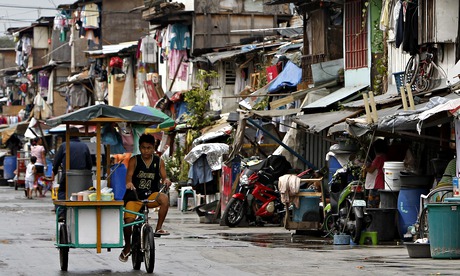
David Cameron is warned today by Graça Machel, widow of the late South African statesman Nelson Mandela, that unless world leaders made 2015 a year for development, the consequence would not just be poverty but also growing military conflicts from which the rich would be unable to protect themselves for decades to come.
It is Machel's first global political act since the death of her husband last year.
The letter to Cameron has also been signed by Archbishop Desmond Tutu, the rock star Bono, the Nobel peace prize winner Muhammad Yunus, the billionaire entrepreneur Mo Ibrahim and the 17-year-old Pakistani activist Malala Yousafzai.
The letter presses the prime minister to take the lead on an international UN framework agreement on climate change in 2015, and to secure an agreement on new tighter UN millennium development goals, an issue on which he took a personal lead last year.
The letter coincides with the anniversary of Mandela's birthday – and also the day on which the current stage of negotiations on replacing the millennium development goals is due to close.
At present there is little sign of progress on the goals, with signs that there will be an increase in the number to 17 and a proliferation in targets to 145. That number is widely seen as unwieldy.
The joint letter warns: "A growing insecurity caused by unequal access to increasingly scarce natural resources leads to tragic conflicts from which nobody – no elite, no matter how rich – can hide. This is an entirely plausible outcome of a complacent business-as-usual approach to 2015.
"Which world do you want to live in by 2030? Which world it will be depends upon the decision you make in 2015, and the preparations we make for it now."
The letter also calls for a global movement to unite development, climate and human rights campaigns around this agenda to force the ambition that is needed.
A campaign called Action/2015 – backed by hundreds of organisations from around the world, from Amnesty International to the All Africa Conference of Churches, Save the Children to the ONE Campaign – will be launched in January 2015.
The letter says: "The good news is a global movement is coming together for 2015 and the future, inspired by the words of Nelson Mandela: 'Like slavery, like apartheid, poverty is not natural. It is manmade and it can be overcome by the actions of human beings.' Climate change too can and must be remedied by the actions of human beings."
The campaigners say they fear that the summit on climate change called by the UN secretary general, Ban Ki-moon, this September is already in the balance, with states unwilling to make the early commitments they have been asked to for fear of weakening their negotiating hand. Cameron is under pressure to confirm he will go to the summit on 23 September, and make a substantial pledge, but has so far made no commitment, citing the Scottish referendum and his own party conference.
Efforts are also being made to galvanise the Labour leader, Ed Miliband, who has so far said little on the subject.
Brendan Cox, of Save the Children, said: "This is a warning siren from some of the world's most respected leaders and we ignore it at our peril. 2015 is a huge year for the planet and the people that live on it, but on our current trajectory we risk squandering this opportunity. It's not too late to correct course and raise ambition, but it soon will be."
Dr Sipho Moyo, from the One Campaign, said: "2015 is an historic opportunity for change. A focused package of ambitious but achievable development goals can really empower grassroots citizens of the global south – and those globally who campaign in solidarity with them – to demand and receive vital life-saving and life-changing health, education and infrastructure services from governments.
"If this happens, eradicating the injustice of extreme poverty is within our grasp – we can't and we won't let this opportunity slip."

